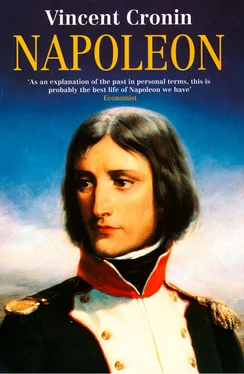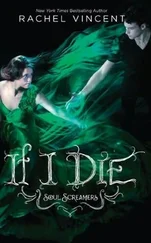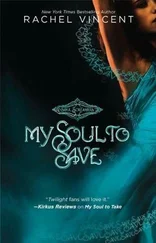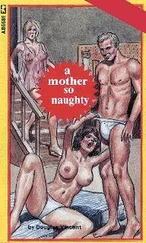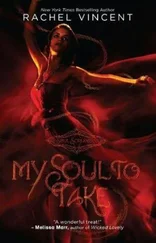Vincent Cronin - Napoleon
Здесь есть возможность читать онлайн «Vincent Cronin - Napoleon» — ознакомительный отрывок электронной книги совершенно бесплатно, а после прочтения отрывка купить полную версию. В некоторых случаях можно слушать аудио, скачать через торрент в формате fb2 и присутствует краткое содержание. Жанр: unrecognised, на английском языке. Описание произведения, (предисловие) а так же отзывы посетителей доступны на портале библиотеки ЛибКат.
- Название:Napoleon
- Автор:
- Жанр:
- Год:неизвестен
- ISBN:нет данных
- Рейтинг книги:3 / 5. Голосов: 1
-
Избранное:Добавить в избранное
- Отзывы:
-
Ваша оценка:
- 60
- 1
- 2
- 3
- 4
- 5
Napoleon: краткое содержание, описание и аннотация
Предлагаем к чтению аннотацию, описание, краткое содержание или предисловие (зависит от того, что написал сам автор книги «Napoleon»). Если вы не нашли необходимую информацию о книге — напишите в комментариях, мы постараемся отыскать её.
Napoleon — читать онлайн ознакомительный отрывок
Ниже представлен текст книги, разбитый по страницам. Система сохранения места последней прочитанной страницы, позволяет с удобством читать онлайн бесплатно книгу «Napoleon», без необходимости каждый раз заново искать на чём Вы остановились. Поставьте закладку, и сможете в любой момент перейти на страницу, на которой закончили чтение.
Интервал:
Закладка:
The royal heraldist issued Napoleon’s certificate and the time came for the two brothers to part. Joseph cried profusely but only one tear ran down Napoleon’s cheek, and this he tried to hide. Afterwards, the assistant head-master, who had been watching, said to Joseph, ‘He didn’t show it, but he’s just as sad as you.’
In the second half of May Napoleon was taken by Bishop de Marbeuf’s vicar to the little town of Brienne, lying in the green part of Champagne, a countryside of forests, ponds and dairy farms. Here stood a plain eighteenth-century building in a garden of five acres approached by an avenue of lime trees. Brienne had been an ordinary boarding-school until two years before, when the Government, alarmed by France’s string of defeats, had turned it into one of twelve new military academies. But they had retained the old staff, so, paradoxically, Brienne Military Academy was run by members of the Order of St Francis, in brown habits and sandals. The head-master was Father Louis Berton, a gruff, rather pompous friar in his early thirties, and the second master was his brother, Father Jean Baptiste Berton, an ex-grenadier known as ‘the friar in ique ’ because he used so many words ending in -ique. They were unremarkable men but they ran Brienne well and it was reckoned one of the better academies.
Napoleon was taken to a dormitory containing ten cubicles, each furnished with a bed, a bran mattress, blankets, a wooden chair and a cupboard on which stood a jug and wash-basin. Here he unpacked his three pairs of sheets, twelve towels, two pairs of black stockings, a dozen shirts, a dozen white collars, a dozen handkerchiefs, two nightshirts, six cotton nightcaps, and finally his smart blue cadet’s uniform. A container for holding powder to dress his hair and a hair-ribbon he laid aside, for until the age of twelve cadets had to keep their hair cut short. At ten o’clock a bell rang, candles were blown out and Napoleon’s cubicle, like the others, was locked. If he needed anything he might call to one of two servants who slept in the dormitory.
At six Napoleon was awakened and his cubicle unlocked. Having washed and put on his blue uniform with white buttons, he joined the other boys in his class – the ‘septième’ – for a talk on good behaviour and the laws of France. Then he went to Mass. After breakfast of crusty white bread, fruit and a glass of water, at eight he began lessons, the staple subjects being Latin, history and geography, mathematics and physics. At ten came classes in building fortifications and in drawing, including the drawing and tinting of relief maps. At noon the boys had their main meal of the day. It consisted of soup, boiled meat, an entrée, a dessert, and red burgundy mixed with one-third water.
After dinner Napoleon had one hour’s recreation, then more lessons in the staple subjects. Between four and six he learned, depending on the day, fencing, dancing, gymnastics, music and German, English being an alternative. He then did two hours’ homework and at eight supped off a roast, an entrée and salad. After supper he had his second hour’s recreation. Evening prayers were followed by lights out at ten. On Thursdays and Sundays he went to High Mass and Vespers. He was expected to go to Confession once a month, and to Communion once every two months. He had six weeks’ annual holiday between 15 September and 1 November: only rich pupils could afford to go home and Napoleon was not one of them. In winter the cubicles became very cold and sometimes water in the jugs froze. The first time this happened Napoleon’s puzzled exclamations caused much amusement: he had never before seen ice.
There were fifty boys at Brienne when Napoleon arrived but as he went up in the school numbers increased to a hundred. Most were his social superiors. Some boys had names famous in history, others had fathers or uncles who hunted with the King, mothers who attended Court balls. In Corsica he had been near the top socially; now he suddenly found himself near the bottom. Also, he was a state-subsidized boy, and although Louis XVI had stipulated that no distinction must be made, inevitably the fee-paying boys made the others feel it. Finally, he was the only Corsican. There were other boys from overseas, including at least two English boys, but Napoleon, with his Italian accent, inevitably stood out, and for a new boy that does not pay. Alone in a strange country, far from his family, speaking a new language, still feeling awkward in his blue uniform, he certainly needed the courage his mother had wished him. But at nine, boys are adaptable and soon he had settled in.
We have three authentic incidents from the Brienne years. The first is an early one, when Napoleon was nine or ten. He had broken some rule and the master on duty imposed the usual punishment: he was to wear dunce’s clothes and to eat his dinner kneeling down by the refectory door. With everyone watching, Napoleon came in, dressed no longer in his blue uniform but in coarse brown homespun. He was pale, tense and staring straight ahead. ‘Down on your knees, sir!’ At the seminarist’s command Napoleon was seized by sudden vomiting and a violent attack of nerves. Stamping his foot, he shouted, ‘I’ll eat my dinner standing up, not on my knees. In my family we kneel only to God.’ The seminarist tried to force him, but Napoleon rolled over on the floor sobbing and shouting, ‘Isn’t that true, Maman? Only to God! Only to God!’ Finally the Head-master intervened and cancelled the punishment.
On another occasion the school was having a holiday. Some of the boys were performing a verse tragedy – Voltaire’s La Mort de César – and Napoleon, older now, was cadet-officer of the day, when another cadet came to warn him that the wife of the school porter, Madame Hauté, was trying to push her way in without an invitation. When stopped, she started shouting abuse. ‘Take the woman away,’ said Napoleon curtly, ‘she is bringing licentiousness into the camp.’
All the cadets were allotted a small piece of land on which they could grow vegetables and make a garden. Napoleon, with his farming background, took a lot of trouble planting his piece of land and keeping it neat. Since his immediate neighbours were not interested in gardening he added their ground to his; he put up a trellis, planted bushes, and to keep the garden from being spoiled, enclosed it with a wooden palisade. Here he liked to read and think about home. One of the books he read there was Tasso’s epic of the Crusaders, Jerusalem Delivered , cantos from which the Corsican guerrillas used to sing, and another was Delille’s Jardins , one passage of which imprinted itself on his memory. ‘Potaveri,’ he recalled, ‘is taken from his native land, Tahiti; brought to Europe, he is given every attention and nothing is neglected in order to try to amuse him. But only one thing strikes him, and brings to his eyes tears of sorrow: a mulberry tree; he throws his arms round it and kisses it with a cry of joy: “Tree from my homeland, tree from my homeland!”’
The garden which reminded him of home became Napoleon’s retreat on holidays. If anyone poked a nose in then, Napoleon would chase him out. On 25 August, the feast of St Louis, which was celebrated as the King’s official birthday, every cadet over fourteen was allowed to buy gunpowder and make fireworks. In the garden next to Napoleon’s a group of cadets built a set-piece in the form of a pyramid, but when the time came to light it, a spark shot into a box of gunpowder, there was a terrific explosion, Napoleon’s palisade was smashed and the boys in their alarm stampeded into his garden. Furious at seeing his trellis broken and his bushes trampled down, Napoleon seized a hoe, rushed at the intruders and drove them out.
Читать дальшеИнтервал:
Закладка:
Похожие книги на «Napoleon»
Представляем Вашему вниманию похожие книги на «Napoleon» списком для выбора. Мы отобрали схожую по названию и смыслу литературу в надежде предоставить читателям больше вариантов отыскать новые, интересные, ещё непрочитанные произведения.
Обсуждение, отзывы о книге «Napoleon» и просто собственные мнения читателей. Оставьте ваши комментарии, напишите, что Вы думаете о произведении, его смысле или главных героях. Укажите что конкретно понравилось, а что нет, и почему Вы так считаете.
